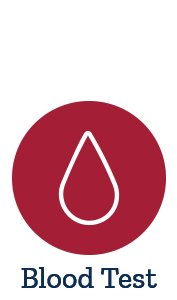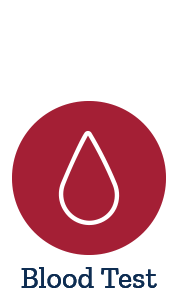
Newsletter
Newsletter
Nutritional Supplements Associated with Statin Benefits

A study of more than 16,000 people participating in the National Health and Nutrition Examination Survey (NHANES) found that taking statin drugs in combination with dietary supplements was associated with a significantly lower risk of high cholesterol compared with taking statins alone. Additionally, taking dietary supplements and statins was associated with lower levels of hemoglobin A1c (HbA1c) and higher levels of beneficial high-density lipoprotein (HDL) cholesterol.
Doctors prescribe statin drugs to lower total cholesterol, LDL cholesterol and triglycerides, and raise levels of HDL cholesterol, which can help decrease the risk of cardiovascular events. Atorvastatin, simvastatin, lovastatin, pravastatin and rosuvastatin are popular statin drugs.
This analysis divided individuals in the study into four groups consisting of those who used statins alone, statins plus supplements, supplements alone or neither statins nor supplements. Among those who were treated with statins alone, 15.6% had high total cholesterol levels (defined as 240 mg/dL or higher), HbA1c concentrations averaged 6.3% and HDL cholesterol averaged 47 mg/dL. For those who used statins plus vitamins, just 5.1% had high total cholesterol, while HbA1c averaged 6.0% and HDL cholesterol averaged 50 mg/dL.
While the group who used statins plus dietary supplements had the lowest levels of total and low-density lipoprotein (LDL) cholesterol of the four groups, those who consumed nutrients but not the statins had the lowest levels of HbA1c and triglycerides and the highest HDL levels.
Interestingly, the significantly healthier diets of dietary supplement users—and other unmeasured lifestyle factors—could have influenced these results.
The NHANES data was collected over a five-year period, from 2013 to 2018, by the National Center for Health Statistics of the Centers for Disease Control and Prevention.
The study was reported in the January 2023 issue of Current Developments in Nutrition.1
Products
Apply What You’ve Learned: High Cholesterol
- Cholesterol is carried throughout the body on lipoproteins. High-density lipoprotein (HDL) transports cholesterol away from the body’s tissues to the liver, where it is reprocessed or discarded. Low-density lipoprotein (LDL) is the primary particle for carrying cholesterol from the liver to other cells in the body. LDL can transport cholesterol to the lining of the arteries, where it contributes to atherosclerotic plaque development. Higher HDL levels and lower LDL levels are among many factors that may help protect against cardiovascular disease.
- Your annual lab work should include a blood lipid profile that measures total cholesterol levels, triglycerides, low-density lipoprotein (LDL), very low-density lipoprotein (VLDL) cholesterol, high-density lipoprotein (HDL) cholesterol and more.
- Life Extension suggests keeping total cholesterol at around 160–180 mg/dL and LDL cholesterol under 80 mg/dL. Healthy cholesterol levels may be maintained with prescription drugs and/or nutritional therapies, according to your health care provider’s recommendations.
- Nutritional options that may improve cholesterol levels include artichoke extract, pantethine, Indian gooseberry (amla), garlic, hesperidin, soluble fiber, the probiotic Lactobacillus reuteri 30242, green coffee bean extract, turmeric and curcumin, and more.2-10
References
- MacDonald TS et al. Curr Dev Nutr. 2022 Dec 23;7(1):100007.
- Wider B et al. Cochrane Database Syst Rev. 2009 Oct 7;(4):CD003335.
- Evans M et al. Vasc Health Risk Manag. 2014 Feb 27;10:89-100.
- Gopa B et al. Indian J Pharmacol. 2012 Mar;44(2):238-42.
- Ried K et al. Nutr Rev. 2013 May;71(5):282-99.
- Rizza S et al. J Clin Endocrinol Metab. 2011 May;96(5):E782-92.
- Surampudi P et al. Curr Atheroscler Rep. 2016 Dec;18(12):75.
- Jones ML et al. Eur J Clin Nutr. 2012 Nov;66(11):1234-41.
- Ding F et al. Nutr Metab Cardiovasc Dis. 2020 Jan 3;30(1):1-10.
- Qin S et al. Nutr J. 2017 Oct 11;16(1):68.
Featured Life Extension Magazine® Article
Magnesium’s Role in Fighting Type II Diabetes
By Martin Stephens
Magnesium is one of the body’s most plentiful minerals. Unfortunately, magnesium intake is inadequate among half of all US adults and 25% are deficient.
A number of enzymes and proteins that are dependent on magnesium are involved in insulin function and glucose metabolism. Failure to consume a sufficient amount of this essential mineral appears to contribute to the development of type 2 diabetes. Supplementation with magnesium has been shown to help improve insulin sensitivity and blood glucose control in studies involving type 2 diabetics as well as in nondiabetics who have insulin resistance or are overweight.
Read Full Article
What's Hot
Health Concern
Resveratrol supplementation linked to better blood lipids
A meta-analysis of randomized, controlled trials published on September 11, 2022, in the journal Nutrients found an association between lower lipids and supplementing with resveratrol, a nonflavonoid polyphenol compound found in grapes, knotweed and other plants.

Cholesterol Management
Emerging research into underappreciated aspects of cholesterol biochemistry has revealed that levels of cholesterol account for only a portion of the cardiovascular risk profile.
Related Life Extension Magazine® Articles

Consumer Confusion about Cholesterol and Statin Drugs
Statin drugs deplete the body’s CoQ10 and vitamin K. Restoring these nutrients can reduce symptoms of heart failure and alleviate statin drugs’ side effects.

Natural Methods To Control Cholesterol
Nearly 25 million people take cholesterol-lowering drugs yet heart disease remains the biggest killer. Researchers have found two compounds that safely lower dangerous LDL cholesterol while boosting protective HDL.
Life Extension Magazine® Issue Now Online
A remarkable number of healthy-longevity findings have been published over the past 18 months.




